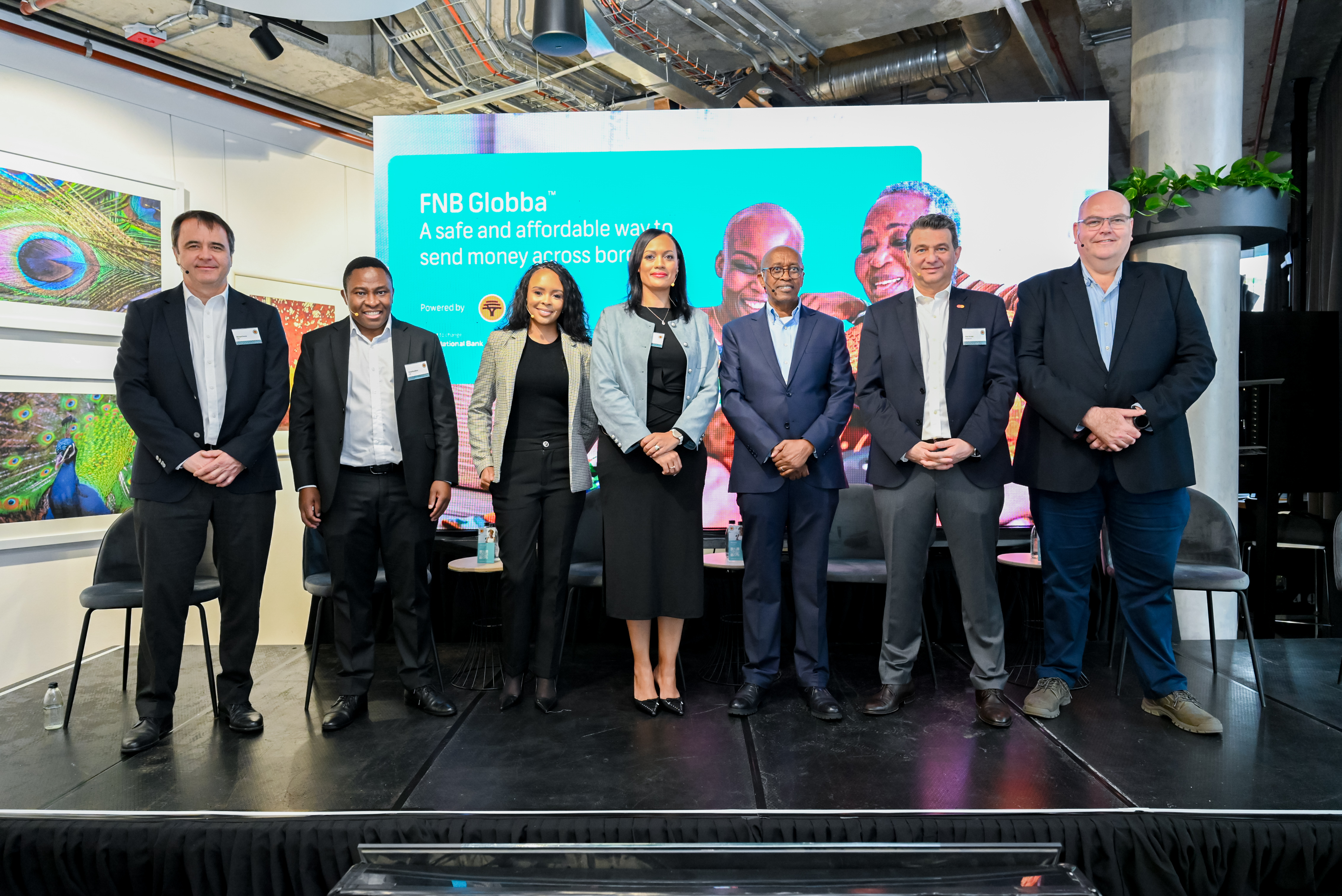Now, those obstacles are beginning to shift, powered not by competition, but by collaboration between banks, regulators, and global networks.
The launch of FNB’s Globba™, developed with Mastercard and aligned with South Africa’s payments-policy agenda, signals a new kind of progress for Africa. It represents a model for how financial institutions can work together to expand access and inclusion; a model built on cooperation, not competition.
A new kind of infrastructure
In most of Africa, financial inclusion depends on choice. Some people bank online; others still rely on cash. Globba™ was designed for both. It enables FNB customers to send money to more than 120 countries, with near real-time delivery and clear, affordable pricing starting at R30. Recipients can receive funds directly into a bank account, mobile wallet, or collect cash at pickup points, offering flexibility that matches their circumstances.
Every transaction takes place securely within the FNB App or online banking, removing the need for third-party wallets or agents. For FNB, this builds onto their trusted local infrastructure and compliance systems. For Mastercard, it extends a global payment network that connects millions across markets.
Together, the two institutions are helping shift remittances from informal to formal systems and turning what was once slow and uncertain into a faster, safer, more transparent process.
Former South African Reserve Bank National Payment System Department Head, Tim Masela described this collaboration as essential to financial inclusion, noting that when banks, fintechs, and regulators work together, “money moves from under the table into trusted systems that benefit everyone.”

Innovation that starts with people
Behind every transfer is a human story: a parent sending money home, a student covering fees, a small trader paying suppliers. These are the stories that power Africa’s financial heartbeat.
Sizwe Nxedlana, CEO of FNB Private, added that Globba™ fills a critical gap in the bank’s payment ecosystem. “Globba™ enhances what was a lagging capability in global payments. It’s not just about moving money—it’s about the trust, transparency, and financial access it unlocks for our customers,” Nxedlana explained.
At the Globba™ launch, Lytania Johnson, CEO of FNB Personal Segment, said the solution is about redefining access and opportunity by showing that technology can be built around empathy, not just efficiency.
That human-centred approach runs through the design: affordable, flexible, and transparent.
By solving for real-world needs rather than product margins, FNB and Mastercard are showing how digital innovation can still serve the human element, a key principle in the continent’s journey toward broader financial inclusion.
Richard Porter, CEO of FNB Foreign Exchange, said Globba™ was inspired by the real challenges customers face and the need to make those payments simpler and more affordable.
Collaboration as a growth strategy
For decades, Africa’s fintech story was told through disruption: start-ups versus banks, local players against global networks. The next chapter is not about who wins, but about how they work together.
Partnerships like FNB and Mastercard’s are building shared infrastructure that makes access easier and inclusion broader.
Gabriel Swanepoel, Mastercard’s Country Manager for Southern Africa, said the partnership combines FNB’s local expertise with Mastercard’s global network to make cross-border payments “faster, secure and transparent for everyone.”
This shift is also policy-aligned. Globba™ supports both the G20 Roadmap for Enhancing Cross-Border Payments, which calls for faster, cheaper, more transparent transfers, and South Africa’s Vision 2030 Plus, which promotes efficiency, security and regional integration.
Masela noted that South Africa’s regulators are increasingly focused on creating “an enabling environment” that balances innovation and safety, ensuring that progress doesn’t come at the cost of trust.

Partnerships as Africa’s competitive edge
When money moves faster, economies follow. Cross-border payments are not only about sending support home; they fund education, trade, and small enterprise. Each improvement in speed and affordability keeps more value circulating within communities.
Onur Kursun, Mastercard’s Executive Vice President for Commercial and New Payment Flows in Eastern Europe, the Middle East and Africa, described financial access as “basic infrastructure, like electricity or water.” He stressed that when people can move money freely, economies become more connected, resilient, and inclusive.
FNB’s multi-rail strategy, which includes services like MoneyGram alongside Globba™, shows that inclusion means giving people choice, not limiting them to one path.
This partnership demonstrates that Africa’s strength lies not in disruption alone, but in shared progress; where banks, networks, and regulators co-create the systems that sustain the continent’s next growth wave.
The takeaway
If the last decade was about innovation, then the next will be about collaboration.
With Globba™, FNB and Mastercard have shown that when financial leaders work together, inclusion can become not just a goal, but a standard.
Africa’s remittance revolution is here, powered not by competition, but by connection. Because when progress is shared, everyone moves forward. DM
About Globba™
FNB Globba™ is a cross-border payments solution developed by FNB and Mastercard, allowing FNB customers to send money to more than 140 countries through bank accounts, mobile wallets or cash-pickup points. The service aligns with South Africa’s Vision 2030 Plus and the G20 roadmap, advancing financial inclusion through secure and affordable digital infrastructure.
Visit FNB for details.




